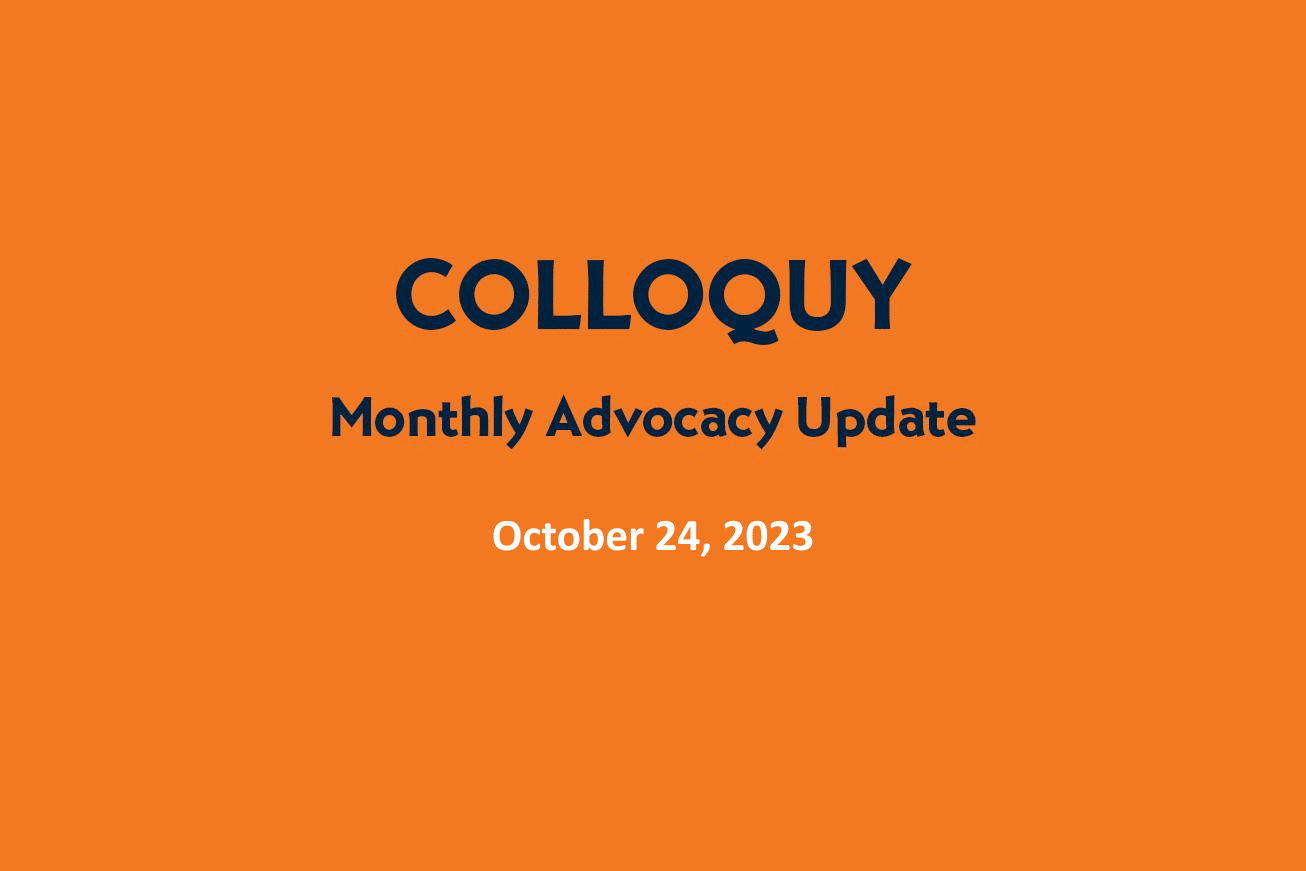
Advocacy Update, October 2023
Updates on the Guardianship Bills, Updated Webform to Report Elder Abuse, Looming Government Shut Down, our Advisory Council, SEMCOG survey, and 4AM Annual Conference





Use our Resource Directory to get access to things like meal delivery, caregiving services, in-home help, and more.
Senior Action Week is Next Week!
Every year, Michigan’s older adult advocates hold Senior Action Week to honor the contributions of seasoned Michiganians and to promote their asks before the legislature for the upcoming fiscal year. This year, Senior Action Week will take place April 29th through May 3rd, with the main event—Older Michiganians Day—occurring on Wednesday, May 1st. On Older Michiganians Day, a ceremony will be held on the capitol lawn featuring members of the Michigan legislature and aging stakeholders from around the state who will highlight the following fiscal year 2025 priorities:
1) Strengthening the Long Term Care Ombudsman program by adding 33 new full-time positions at an estimated total cost of $3 million.
2) Assisting family and informal caregivers by supporting a permanent $5 million appropriation distributed to area agencies on aging (AAAs) so they can continue to develop Caregiver Resource Centers and passing the Caring for MI Family Tax Credit to provide tax relief of up to $5,000 per year for family caregivers.
3) Expanding access to the MI Choice Waiver program by rebalancing state expenditures between Home and Community-Based Services (HCBS) and institutional care and supporting an increase of the participant’s asset limit to reflect inflation.
4) Increasing access to Home and Community-Based Services (HCBS) by supporting the Silver Key Coalition’s request of a $7 million increase for ACLS Bureau in-home services and making the $1 million increase granted for home-delivered meals during the last fiscal year permanent.
The Older Michiganians Day ceremony will begin at approximately 10:30 AM. Those that are interested in viewing the Older Michiganians Day ceremony can watch it here. If you have not filled out our Older Michiganians Day petition, please do so below.
Michigan House Fills Two Vacant Seats
Michigan’s 16th and 25th districts elected their new representatives to the Michigan House last week after their previous legislators, Lori Stone and Kevin Coleman, stepped down to become mayors of Warren and Westland, respectively. In The Senior Alliance’s service area, District 25—which encompasses all of Wayne and parts of Westland, Canton, and Dearborn Heights—elected Peter Herzberg. Representative-elect Herzberg grew up in Westland and served as a councilman in the city for 13 years. The Senior Alliance looks forwards to working with Representative-elect Herzberg to address the needs of older adults in his district and throughout the state.
State Budget Still in Process
The Michigan Legislature continues to work through Michigan’s budget for the upcoming fiscal year, the deadline for which is June 30, 2024. The chairs for each appropriations committee recently received their budgets from Governor Whitmer’s office and are in the process of holding hearings with key budget stakeholders. Led by Representative Christine Morse, the appropriations committee that funds aging services—the Department of Health and Human Services appropriations committee—has held hearings on many different topics including behavioral health, child welfare, maternal health, and aging supports.
The Senior Alliance continues to advocate for our priorities to receive funding in this year’s budget.
Legislation Spotlight: Federal Bills Aimed at Improving Access to Home and Community Based Services and Supporting for the Direct Care Workforce
Over the last two years, Representative Debbie Dingell and Senator Bob Casey introduced several bills to their respective chambers that seek to address the U.S. caregiver crisis and increase access to in-home services for older adults and people with disabilities. Both of these issues are at the forefront of what The Senior Alliance, as well as many other organizations serving aging individuals, believe is essential to responsibly and compassionately planning for the aging of the U.S. population over the next several decades.
Right now, direct care workers are widely underpaid, earning a median wage of $15.43 an hour and often living in poverty as a result. Because of this, direct care workers are in short supply, with a recent survey revealing 92% of nursing homes and nearly 70% of assisted living facilities having a significant or severe workforce shortage. Another recent survey of home and community-based services (HCBS) providers showed all 50 states experiencing home care worker shortages, and 43 states reported that some HCBS providers have closed due to worker shortages. As our nation ages and there are more people needing care with fewer people providing it, this caregiver shortage is projected to keep expanding.
However two bills, the Long Term Care Workforce Support Act (S. 4120, HR 7994) and the Better Care Better Jobs Act (S.100, H.R.547), could change this. Both of these bills seek to stabilize the current direct care workforce, attract new employees to the field, and support the 53,000 family caregivers who often replace or work in conjunction with direct care workers to provide high quality care for their loved ones. They would do this by increasing direct care workers’ wage, expanding efforts to professionalize the field, and enhancing access to training course for both direct care workers and family caregivers.
Another set of bills HCBS Access Act (S. 762, H.R. 1493) and the HCBS Relief Act (S. 3118, H.R. 6296), along with the Better Care Better Jobs Act, would ensure eligible older adults and people with disabilities have a real choice between home care and institutional care. The bill would eliminate HCBS waiting lists, end the process of states having to repeatedly reapply for HCBS waivers, and create uniform and expanded eligibility criteria for HCBS. Additionally, the bills would increase Medicaid funding for HCBS, create better evaluation measures to assess the quality of HCBS being provided, and require states to undertake activities to improve service delivery, such as providing helping individuals who were relocated to nursing facilities move back home.
The Senior Alliance and its federal association, USAging, will continue to advocate for these bills and the additional measures to fix the key issues they address.

Updates on the Guardianship Bills, Updated Webform to Report Elder Abuse, Looming Government Shut Down, our Advisory Council, SEMCOG survey, and 4AM Annual Conference

Updates on the Government Shutdown, Metro-Detroit Districts, our Advocacy Priorities in 2024, Michigan’s Election Schedule, Michigan Legislature, and Medicaid Redetermination

Updates on the Federal Budget, Aging Services Testimony, Redistricting, and Direct Care Worker Shortage